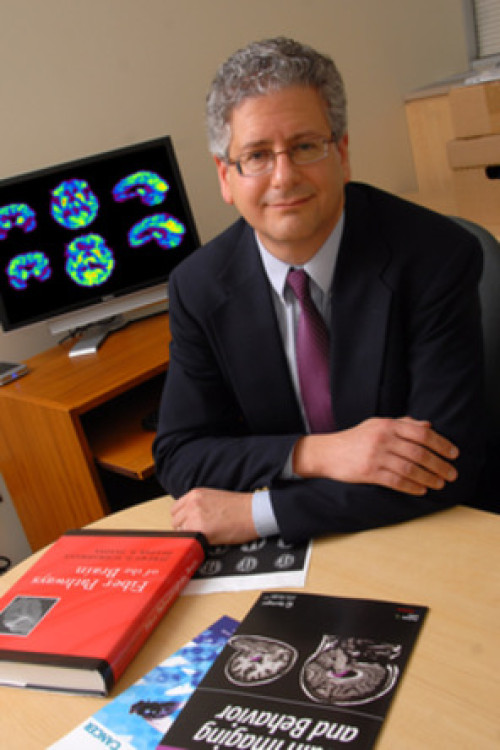
People with a newly identified genetic variant perform better on certain types of memory tests, a discovery that may point the way to new treatments for the memory impairments caused by Alzheimer’s disease or other age-associated conditions.
In what the international research team is calling the largest study to date of human memory, an analysis of genomic data and memory test results from more than 14,000 older adults identified a location in the genome that was associated with better memory performance. The researchers noted that the gene has not been associated with cognition in the past.
The research team, led by IU School of Medicine post-doctoral researcher and medical student Vijay K. Ramanan, Ph.D., and Andrew J. Saykin, Psy.D., director of the Indiana Alzheimer Disease Center and the IU Center for Neuroimaging, reported its results in the journal Molecular Psychiatry.
The genome-wide study found that better performance on tests of episodic memory was associated with a change in the DNA on chromosome 2 — a G instead of the more common A nucleotide in a gene known as FASTKD2. The genetic variant — known as a single nucleotide polymorphism, or SNP — was also associated with a larger hippocampus and more dense gray matter in the brain on magnetic resonance imaging scans. The hippocampus is a brain structure involved in storing and retrieving memory. The inability to recall a recent current event, a newspaper article or what one had for dinner is one of the earliest symptoms of Alzheimer’s disease and is also related to hippocampal atrophy.
The FASTKD2 gene is responsible for the production of a protein involved in apoptosis, a process of programmed cell death. The researchers also examined cerebrospinal fluid samples from 82 participants and found lower levels of proteins associated with cell death in the participants with the memory-protective G variant.
More research will be needed to determine whether drugs targeting the FASTKD2 gene could be used to protect against memory loss and related issues in Alzheimer’s disease, Dr. Saykin said.
“There is likely no single ‘memory gene’; we expect that memory is driven by a combination of multiple genes along with environment and lifestyle,” Dr. Saykin said. “Although the influence of FASTKD2 was modest, there are parallels to research in diabetes, cancer and hypertension that uncovered genetic variants with similar effects that turned out to be targets for drugs that are now commonly used.”
Story Source:
The above story is based on materials provided by Indiana University. Note: Materials may be edited for content and length.
Journal Reference:
- V K Ramanan, K Nho, L Shen, S L Risacher, S Kim, B C McDonald, M R Farlow, T M Foroud, S Gao, H Soininen, I Kłoszewska, P Mecocci, M Tsolaki, B Vellas, S Lovestone, P S Aisen, R C Petersen, C R Jack, L M Shaw, J Q Trojanowski, M W Weiner, R C Green, A W Toga, P L De Jager, L Yu, D A Bennett, A J Saykin. FASTKD2 is associated with memory and hippocampal structure in older adults. Molecular Psychiatry, 2014; DOI: 10.1038/mp.2014.142
